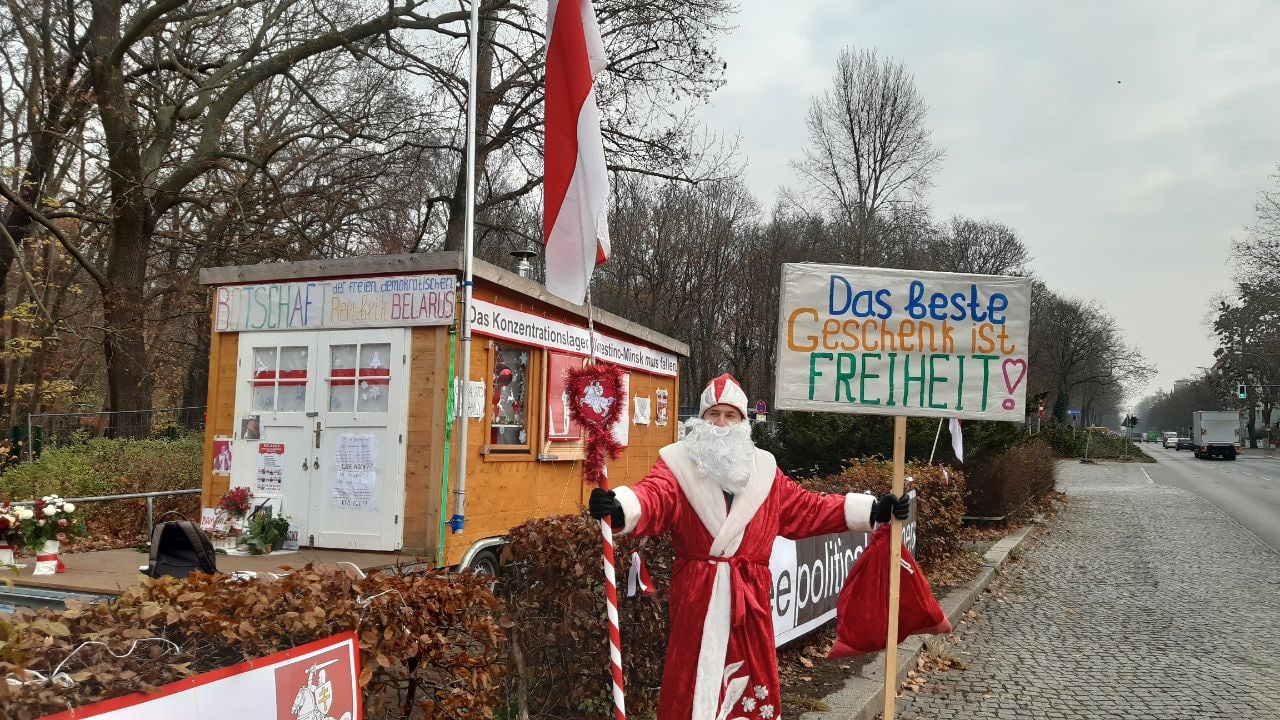The West is turning a deaf ear to the regime’s signals and shows no signs of letting up on the pressure
 The situation has gotten better
The situation has gotten better

Western countries are dismissing the regime’s calls for dialogue and the restoration of practical cooperation. There’s no indication that the West is considering easing the sanctions against Belarus; instead, it continues its strategy of diminishing the authority of the Belarusian government in favor of the structures of democratic forces in exile.
Aliaksandr Valfovich, the State Secretary of the Security Council of Belarus, stated that Belarus is open to dialogue “on all issues,” including the issue of migration. However, he accused Poland and the Baltic countries of being uninterested in engaging in constructive talks. He reiterated that the migration threat does not originate from Belarus and Russia, indirectly placing blame on neighboring countries for the crisis, suggesting that they are pushing migrants onto Belarusian territory.
On November 8, the European Court made another decision regarding a businessman from Lukashenka’s inner circle. This decision pertains to Aliaksandr Zaitsau, who, like Mikalai Varabei, attempted to lift EU sanctions imposed against him.
Sviatlana Tsikhanouskaya, the Belarusian democratic leader, called on Poland not to relent in putting pressure on the regime, despite signals from Lukashenka about his willingness to negotiate. She justifies the need for such pressure by citing a hybrid attack on Poland using migrants, nuclear blackmail, repression of the Polish minority, and the incarceration of thousands of hostages, including Andrzej Poczobut.
The German Bundestag passed a resolution titled “For a Democratic Belarus in the European Family.” The German parliament applauded the restrictive measures already imposed against the Belarusian regime and urged the federal government to continue applying pressure. The resolution also commits Germany to contributing to the development of the Belarusian independent press, democratic institutions, and civil initiatives. Additionally, it approves assistance and rehabilitation for political prisoners and victims of repression, with particular attention to legal issues faced by Belarusians in exile. The Bundestag is actively involved in addressing problems related to Belarusians’ documents.
EU countries issued a statement on the International Day of Solidarity with Belarus, expressing support for the sovereignty and independence of Belarus and solidarity with the Belarusian people’s desire to live in a free and democratic country.
They also called on Belarus to fully respect freedom of association, including for political parties, and to allow all potential candidates to participate in upcoming parliamentary and presidential elections scheduled for February 2024 and 2025.
The EU continues to condemn the artificially created migration pressure on the EU border, the regime’s participation in Russia’s aggressive war against Ukraine, and its involvement in the spread of propaganda and disinformation. Brussels also condemns any participation and assistance in the illegal deportation of Ukrainian children by Russia. The signatories note the deterioration of the human rights situation in Belarus and the continuation of persecution. The authors of the statement also pledge their commitment to continued support of Belarusian civil society and democratic forces. The EU confirms its readiness to cooperate with representatives of Belarusian democratic forces and civil society, including within the framework of the recently created Advisory Group. The EU welcomes the continuation of the work of the Contact Group on Belarus of the Council of Europe, as well as the Belarusian National Platform of the Eastern Partnership Civil Society Forum.
The United States also expresses its commitment to supporting the democratic aspirations of the Belarusian people, developing fruitful relations, and engaging in a productive strategic dialogue with the democratic movement and civil society.
Meanwhile, the National Anti-Crisis Management (NAU) plans to submit the second part of the communication, containing additional evidence of war crimes committed by Aliaksandr Lukashenka and his accomplices, to the International Criminal Court. The ICC prosecutor received the first part in June, which dealt with the illegal transfer of Ukrainian children to Belarus. Pavel Latushka, the leader of the NAU and the deputy head of the United Transitional Cabinet (UTC), calls for holding Lukashenka accountable for crimes against Ukrainian children, war crimes, and crimes against humanity. According to Latushka, there is every reason to bring Lukashenka to justice; all that is needed is political will. This serves as a litmus test for democracy, both for the Belarusian people and the European Union.
Subscribe to our newsletter




Situation in Belarus
Constitutional referendum: main consequences


 Video
Video
How to count the political prisoners: are the new criteria needed?


 Video
Video
Paternalism In Decline, Belarusian Euroscepticism, And The Influence Of Russia


 Video
Video












